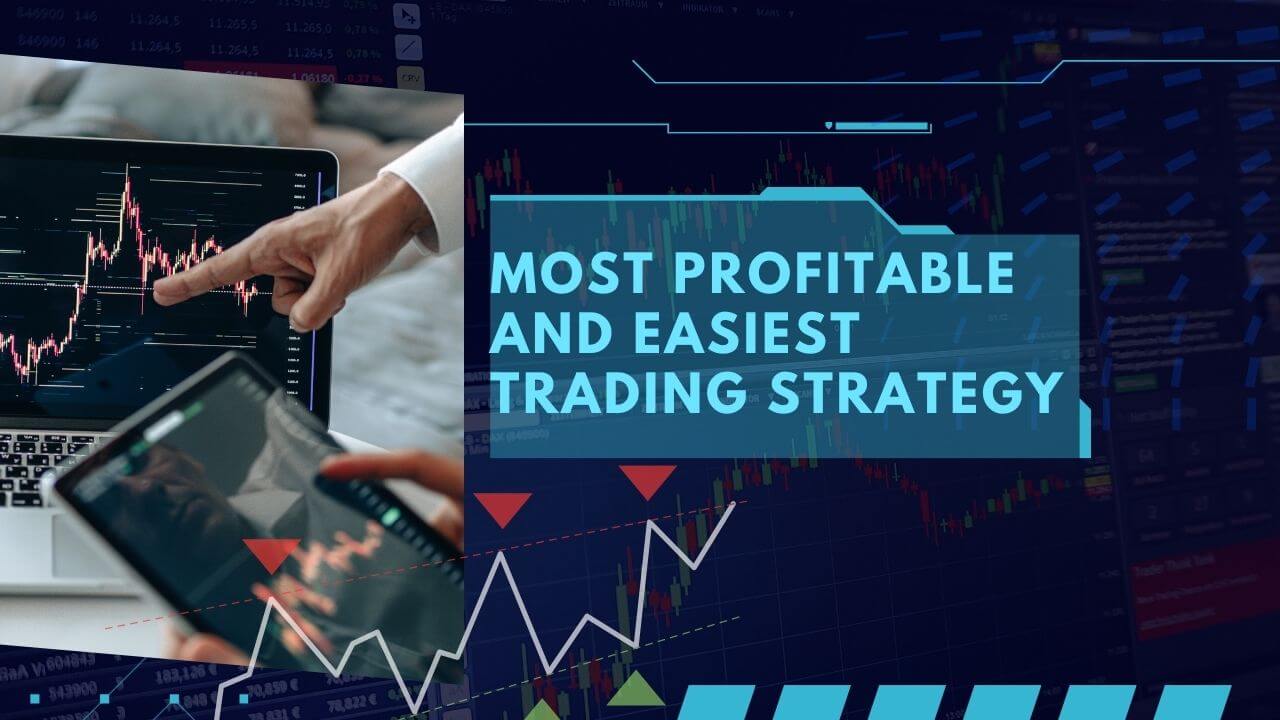Inflation is a silent but powerful force that can have a significant impact on your personal finances. While the effects of inflation may not be immediately noticeable, over time, they can erode the purchasing power of your income and savings. That’s why it’s essential to understand how inflation works and how it can impact your financial situation.
Inflation is simply a measure of the rate of rising prices for goods and services. It’s often expressed as an annual percentage increase. For example, if the inflation rate is 2%, a $100 item will cost $102 in one year.
Inflation affects everyone, but it can have a powerful impact on people on fixed incomes, such as retirees. That’s because their income doesn’t keep pace with rising prices, so they must cut back on spending to make ends meet.
Inflation can also eat away at investment returns. For example, if you earn 10% on your investments in a year when inflation is 5%, your real return is only 5%.
While inflation is a natural part of our economy, high inflation can be detrimental to our finances. That’s why it’s essential to be aware of its effects and take steps to protect yourself from its negative impacts.
Table of Contents
ToggleSeven Ways That The Cost Of Living Increases
The cost of living refers to the money necessary to maintain a particular lifestyle. It includes basic expenses such as housing, food, transportation, and healthcare and other costs such as entertainment and clothing.
A cost of living increase is an increase in the daily price of goods and services people use. This can significantly impact households, businesses, and the economy as a whole.
Here are seven ways that cost of living increases can affect you:
1. Higher prices for necessities: When the cost of living increases, it can ripple affect the prices of other goods and services. This is because families have less money to spend on discretionary items when their budget is tight.
Businesses may respond by raising prices to compensate for the revenue loss. The result is that the cost of living goes up even further, creating a vicious cycle.
In addition to families, businesses also suffer when living costs increase. This is because they must pay more for the goods and services they need. As a result, they may pass these higher costs on to their customers through higher prices. This can lead to decreased profits, which can further impact the economy.
Tracy is a single mother of two who lives in the city. She works as a waitress and struggles to make ends meet. Recently, she’s noticed that the cost of living seems to be increasing. Her rent has increased, and she’s having trouble affording groceries for her family. Tracy worries about how she will make ends meet if prices rise.
“I’ve been tracking our spending more closely and looking for ways to cut back. For example, we’re eating out less often, been couponing and looking for sales when I grocery shop.”
2. Increased inflation: While a one-time increase in the cost of living may not significantly impact inflation, sustained growth can lead to higher inflation rates.
When the cost of living goes up, businesses raise prices, and consumers react by spending less. As a result, the demand for goods and services decreases, leading to slower economic growth. This can eventually lead to higher inflation rates as businesses adjust their prices upward to compensate for the reduced demand.
Joseph is 60 years old and lives in a small town in Connecticut. Joseph lives on a fixed income, meaning he does not receive the cost of living adjustments like Social Security recipients. As a result, when inflation goes up, Joseph’s purchasing power declines. This can make it difficult for him to afford essentials like food and medication.
3. Greater income inequality: According to a recent study, the top 1 percent of earners in America now make more than 27 times what the bottom 99 percent make combined. This growing disparity can have several effects on individuals and families.
For those struggling to make ends meet, increased costs can mean tough choices between food, housing, and other essentials. And as prices continue to go up, it becomes harder and harder to get ahead. This can lead to feelings of resentment and hopelessness.
Meanwhile, those at the top end of the income spectrum are seeing their wealth grow exponentially. This widens the gap between rich and poor and can lead to increased social tensions. As the cost of living continues to rise, it’s essential to be aware of how this trend affects society.
A recent college graduate, Sophia has found that her degree does not guarantee her a good job. She has had to take a series of low-paying jobs with mounting student debt and a struggling economy. As a result, she has become increasingly aware of the growing problem of income inequality.
“I never understood income inequality until I started working,” she says. “I always thought that the playing field was level and that if you worked hard, you would be successful. But now I see that it’s not that simple. There are a lot of people who are working hard and still aren’t making ends meet.”
Sophia is not alone in her experience. Inequality is growing in the United States, and many young people are getting caught in the middle. While some people seem to be doing very well, others struggle to get by. As they enter the workforce, they discover that the American dream is out of reach for many. This growing divide is having a significant impact on our society and our economy, which we need to address.
4. Decreased consumer spending: When the cost of living goes up, it generally decreases consumer spending. This is because consumers have less disposable income when the cost of living is high.
As a result, businesses may decrease revenue, leading to layoffs and higher prices. In addition, an increase in the cost of living can also lead to inflation, as companies pass on their higher costs to consumers.
As inflation increases, the purchasing power of consumers decreases, further reducing their ability to spend. Ultimately, an increase in the cost of living can significantly impact both individuals and the economy as a whole.
Since the outbreak of COVID-19, many businesses have been struggling to keep their doors open. In particular, companies that rely on consumer spending have been hit hard. To help offset the decrease in spending, businesses have offered discounts and promotions.
For example, George’s Restaurant has been struggling to attract customers. In response, George has decided to offer a new service: delivery. By providing delivery, George hopes to reach a broader customer base and increase his sales.
So far, the strategy seems to be working: George’s Restaurant has seen a significant uptick in business since implementing delivery. If you’re looking for ways to offset decreased consumer spending, consider offering a new service or product that your customers will find helpful. George’s story is an excellent example of how thinking outside the box can lead to success.
5. Lower standard of living: A cost of living increase is an increase in the price of goods and services that people purchase regularly. This includes items such as groceries, housing, transportation, and healthcare.
When living costs go up, people’s incomes generally don’t keep pace. As a result, they have less money to spend on other things, which can decrease their living standard.
Cost of living increases can also affect people’s ability to save for retirement or other long-term goals. Over time, even small increases can add up and make it challenging to stay ahead. Sometimes, people may even be forced to make difficult choices, such as whether to pay for housing or food.
Nathan, a 37-year-old father of two, was laid off as a software engineer in 2020. Since then, he has been living off his savings and unemployment benefits. “It’s been a real struggle to make ends meet,” he says. “I’ve had to cut back on many things, and my standard of living has lowered.”
Despite the challenges, Nathan remains optimistic about his future. “I’m looking for a new job, and I’m confident I’ll find something soon,” he says. In the meantime, he is grateful for the support of his family and friends. “They’ve been a big help during this tough time,” he says.
6. Less disposable income: As the cost of living rises, many people find less disposable income. This can have a significant impact on your lifestyle and quality of life.
When your disposable income decreases, you may have to cut back on your spending to make ends meet. This can mean tough choices about which bills to pay and items to purchase. In some cases, it may even mean reducing your standard of living to stay afloat financially.
Emma’s response to having a less disposable income is practical and understandable. Due to the current economic conditions, many people find less money to spend on luxuries and non-essential items.
Emma’s approach of cutting back on unnecessary expenses and focusing on essential needs is a sensible way to manage finances when faced with a reduced income. By making small changes to her spending habits, Emma has maintained her standard of living without incurring debt or jeopardizing her financial stability.
7. Increased borrowing costs: If you borrow money to cover living expenses, such as rent or groceries, a higher cost of living can mean you need to borrow more money to maintain the same standard of living.
This can increase your borrowing costs, as you may be required to take out a larger loan or pay higher interest rates. Additionally, if you are already struggling to make ends meet, a rising cost of living can push you further into debt.
Increased borrowing costs can be a significant financial strain on any household. Here’s what Nathan did when his borrowing costs went up:
“I immediately looked closely at my budget and saw that I could cut back on some discretionary spending. I also called my lenders to see if I could negotiate a lower interest rate. As it turned out, my credit score had gone up since I last applied for a loan, so they were happy to lower my rates. Finally, I contacted my insurance company to see if I could get a discount on my homeowner’s insurance. I saved hundreds of dollars each month by taking these steps, which made a big difference.”
The Impact Of Inflation On Investment
It is a commonly held belief that inflation erodes the value of investments. While it is true that inflation can impact investments, the extent to which it does so depends on the type of investment and the inflation rate.
In general, inflation does not significantly affect debt investments such as bonds and CDs. This is because the payments on these types of investments are fixed, meaning they are not subject to changes in the cost of living.
However, it is essential to note that while the payments may remain fixed, the purchasing power of those payments will decrease as inflation increases. If you invest $1,000 in a bond with an annual interest payment of $100, the $100 you receive each year will be worth less in purchasing power as time goes on.
Equity investments such as stocks and mutual funds are more likely to be impacted by inflation than debt investments. This is because the prices of goods and services tend to increase along with the inflation rate, and companies pass these increased costs on to consumers through price increases. When this happens, the demand for goods and services decreases, leading to a decline in stock prices.
Investors can protect themselves against inflation by investing in TIPS (Treasury Inflation-Protected Securities). The U.S. government offers these securities, and their principal value is adjusted according to changes in the Consumer Price Index (CPI). Another option is to invest in commodities such as gold or silver, which tend to increase in value when there is high inflation.
Inflation is a critical risk that investors face. Over time, inflation can have a significant impact on the purchasing power of your investments. This is why it’s essential to understand how inflation works and how it can impact your investment strategy. By investing in assets such as shares or property which have the potential to deliver strong capital growth over the long term, you can help offset the effects of inflation on your portfolio.
The Impact Of Inflation On Debt
Inflation can have several impacts on debt, both positive and negative. One of the most significant impacts is on the actual value of money. As inflation goes up, the value of money goes down. This means that if you have a fixed amount of debt, the real value of that debt will go down over time. In other words, your debt will be worth less in today’s dollars than when you initially took it out.
Inflation can also impact your ability to repay your debt. If the cost of living goes up faster than your income, you may find it challenging to make your monthly payments. This is especially true if you have a variable-rate loan. With a variable-rate loan, your interest rate will increase as inflation increases. This means that your monthly payments will also increase. If you’re already struggling to make ends meet, it could be even more challenging to repay your debt.
Finally, inflation can impact the value of collateralized debt. Collateralized debt is debt that is backed by some form of collateral, such as a home or car. If inflation increases, the value of the collateral may decrease. This could make it more challenging to sell the collateral or use it as collateral for another loan. Sometimes, it may even lead to lenders requiring additional collateral to secure the loan.
As you can see, inflation can significantly impact debt. Understanding how inflation will affect your specific situation is essential before taking on any new debt. And if you’re already struggling with repayment, be sure to take inflation into account when budgeting for your monthly payments. With a bit of planning and preparation, you can weather any storm that comes your way.
Conclusion
Have you ever been surprised by the effects of inflation on your finances? Inflation is an essential factor to consider when making financial decisions. By understanding how it affects you and your money, you can make more informed choices about your future.














